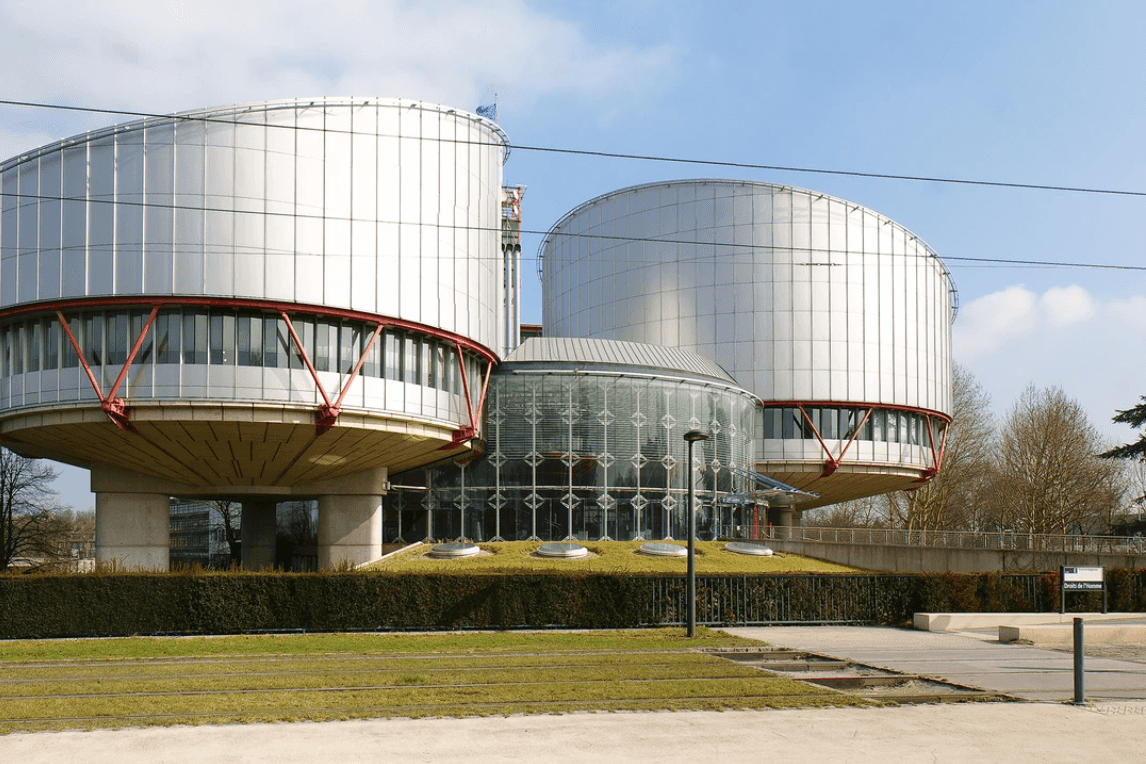

A Georgian transgender man has appealed to the European Court of Human Rights (ECHR) after local courts rejected his plea to have his gender changed in official documents without undergoing sex reassignment surgery.
Forty-six-year-old Nikolo, who has a medical certificate confirming that he is a transgender man, first appealed to the Justice Ministry in 2015 but was turned down because he had not undergone sex reassignment surgery.
‘Even though I want the surgery, I can’t afford it. Moreover, my health condition wouldn’t allow me to do it’, Nikolo told OC Media.
He said that the sex marker in his documents indicating that he is female had caused many problems and embarrassing situations.
‘It’s most problematic when I’m applying for a job. I don’t look like what my documents say about me. Rejection is guaranteed and you can’t even prove that this is the cause for rejection’, said Nikolo, adding that he also encounters problems when crossing borders.
‘Crossing borders is problematic. For example, in [Azerbaijan] they wouldn’t let me cross, saying that there was a mistake in my documents’, said Nikolo.
After the Ministry of Justice refused his request, Nikolo appealed to the courts but was turned down at all three levels.
The Georgian Young Lawyers’ Association (GYLA), a local rights group, filed the appeal to the ECHR on Nikolo’s behalf. The group argues that Georgian legislation does not provide the regulations needed for a person to change the sex marker in their documents.
‘Despite the lack of regulations, administrative organs and national courts require gender reassignment surgery as a prerequisite to change the sex marker, even though according to international standards, such surgery is considered a luxury and potentially a life-threatening procedure’, GYLA said in a statement on Thursday.
The group recalled the ECHR’s 2017 ruling in which it was established that officially changing one’s gender could not be made conditional on undergoing sex reassignment surgery.
The case, of Garçon and Nicot v. France, concerned three French transgender people who had been prevented from changing the sex and forenames on their birth certificates.
The three argued, among other things, that the authorities had infringed on their right to respect for private life by making recognition of their gender identity conditional on undergoing an operation which would most likely make them sterile.
‘The Court held, in particular, that making recognition of the sexual identity of transgender persons conditional on undergoing an operation or sterilising treatment to which they did not wish to submit amounted to making the full exercise of one’s right to respect for private life conditional on relinquishing full exercise of the right to respect for one’s physical integrity’, a press release by the ECHR says.
[Read more from Georgia on OC Media: Transgender woman appeals to Tbilisi Court to recognise her gender]
Demonstration for transgender women’s rights
In March 2018, dozens of demonstrators gathered in front of Tbilisi’s public service hall demanding that transgender people be allowed to more easily change the sex indicated on official identity documents.
The protest was organised by feminist group the Georgian Women’s Movement to mark International Women’s Day on 8 March. The protesters were met by a homophobic counter-rally who threw eggs and chanted ‘shame’.
‘Be ashamed in front of your friends, your neighbourhood, your ancestors. Be ashamed, descendants of David and Tamar’, one of the demonstrators said.
[Read more about the demonstration on OC Media: Feminists and transphobic protesters face off in Tbilisi]
Transgender rights in Georgia
A 2018 report by the Public Defender’s Office noted a number of issues faced by transgender people in Georgia.
It reiterated the need for procedures to change the sex-markers of transgender people in official documents to be eased.
‘The prerequisite of sterilisation to change sex-markers in documents contradicts the principles of respecting one’s body, self-determination, and human dignity’, said the report.
[Read more about transgender people on OC Media: Transgender women ‘kicked out of’ Machakhela restaurant in Tbilisi as ‘unwanted clients’]
The report noted that because of the current rules, transgender people were unable to use state services.
‘They face problems in public engagement, receiving an education, working, and receiving health services, which is negatively reflected on their rights’, the report said.
It also noted that the state budget did not cover medical services for transgender people’s needs.
The report added that transgender people were especially vulnerable to human trafficking and sexual exploitation in Georgia.
The report also said that mechanisms to protect queer people from domestic violence were insufficient. This issue was previously identified in the Public Defender’s 2017 report, which noted that ‘unfortunately, law enforcement officials don’t have an efficient strategy against hate-motivated violence. They react to individual cases and don’t take action against the systematic problem’.








